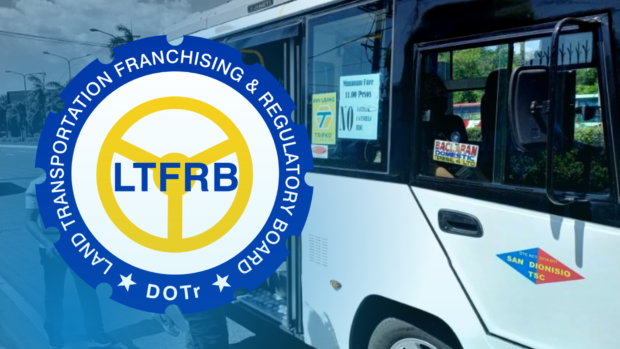
FILE PHOTO: LTFRB’s official Facebook page
The government has lifted a seven-year ban on the sale and transfer of franchises or certificates of public convenience (CPCs) of public utility vehicles (PUVs)—long considered a money-making scheme among transport operators—to make it easier to distribute aid to beneficiaries of the fuel subsidy program.
“Also, operators can now easily join the Public Utility Vehicle Modernization Program (PUVMP) since they will be able to transfer and register their vehicles much faster,” the Land Transportation Franchising and Regulatory Board (LTFRB) said in a statement on Thursday.
The franchising agency, however, said the new policy came with safeguards to prevent misuse of the sale and transfer of franchises for PUVs.
‘Lucrative business’
In 2016, the LTFRB imposed a ban on applications for the sale and transfer of franchises because of “buy and sell operators” who “abused and hijacked” the franchising process as they turned it into a “lucrative business.”
“These are usually transport operators who apply for franchises/CPCs with the Board on various services and lines that they proposed to operate on the service applied for should the application be granted,” the agency said in its Memorandum Circular No. 2016-010.
However, upon the approval of the applications, the LTFRB said, the operators would instead sell the franchises at a hefty profit to interested vehicle owners who had no existing franchise or CPC yet—a scheme that prompted the board to prohibit applications entirely on Aug. 13, 2016.
In the 2016 memorandum, the LTFRB emphasized the right of the state to regulate public utilities as a legitimate exercise to protect the public.
Citing jurisprudence, the memorandum said a CPC “constitutes neither a franchise or a contract, confers no property rights and is a mere license or privilege and the holder of such certificate does not acquire a property right over the route covered thereby. Nor does it confer upon the holder any propriety right, interests, or franchises in a public highway. Revocation of this certificate deprives him of no vested right.”
“This has been a lucrative business which mocks the very purpose why franchises/CPCs are applied for and granted,” the memorandum added.
In its decision to lift the ban, the LTFRB cited the implementation of the PUVMP, in which owners of PUVs who failed to transfer and register their vehicles in their name were unable to receive the benefits under the fuel subsidy program.
The program is intended to alleviate the impact of inflation on transport workers, especially PUV drivers.
Under Memorandum Circular No. 2023-027, the agency noted that the affected franchise vendors were only given a 15-day period, which was “too compressed” to process the sale and transfer of CPCs before the implementation of the ban in 2016.
The LTFRB also cited the appeal of some transport groups, such as Nagkakaisang Samahan ng mga Nangangasiwa ng Panlalawigang Bus sa Pilipinas Inc., which requested the agency to revisit and evaluate the memorandum circular.
“The Board agreed that the absolute prohibition set forth under MC 2016-010 be set aside,” the LTFRB said, adding that it also included safeguards in allowing the transfer of CPCs “to deter the fraudulent schemes” previously employed by some operators.
Among the conditions in the sale and transfer of franchises is that “the CPC subject for transfer must be valid and subsisting at the time of the application.”
Another condition is that “the transfer must also cover all authorized units under the subject CPC and no fractional transfer of CPC shall be allowed.”
“Only two transfers shall be allowed during the validity of the CPC, provided that no transfer shall be allowed during the first year from the grant of CPC nor during the one year prior to the expiration of the validity of the CPC,” the LTFRB said.
According to LTFRB Chair Teofilo Guadiz III, the agency was “mindful of the situation” as it took careful consideration in lifting the ban.
“We needed to strike a balance between allowing a legitimate CPC transfer and at the same time deter any form of abuse,” he said.
Earlier this month, the Department of Transportation said it hoped to start distributing fuel subsidies to transport workers by the end of August, once it received the P2.95-billion fund from the budget department.
The LTFRB is expected to distribute the cash aid to some 1.64 million PUV drivers, including tricycle drivers and delivery riders.